CASE STUDY
Make Room Project 602 Little Bourke Street, Melbourne VIC
ESD Investigations
Residential / Short-term accommodation
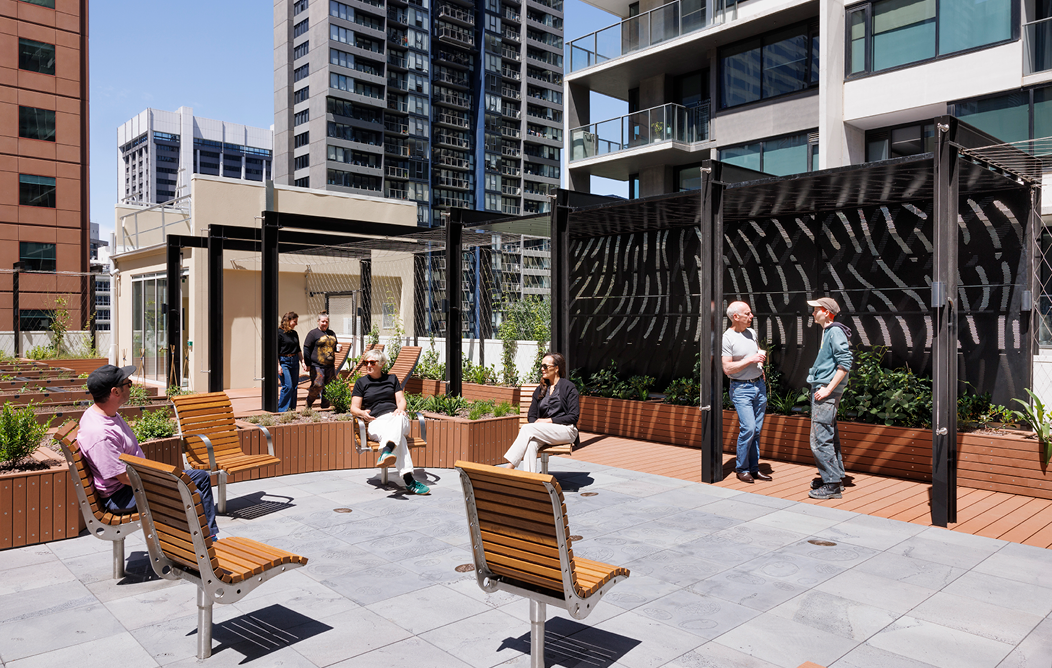
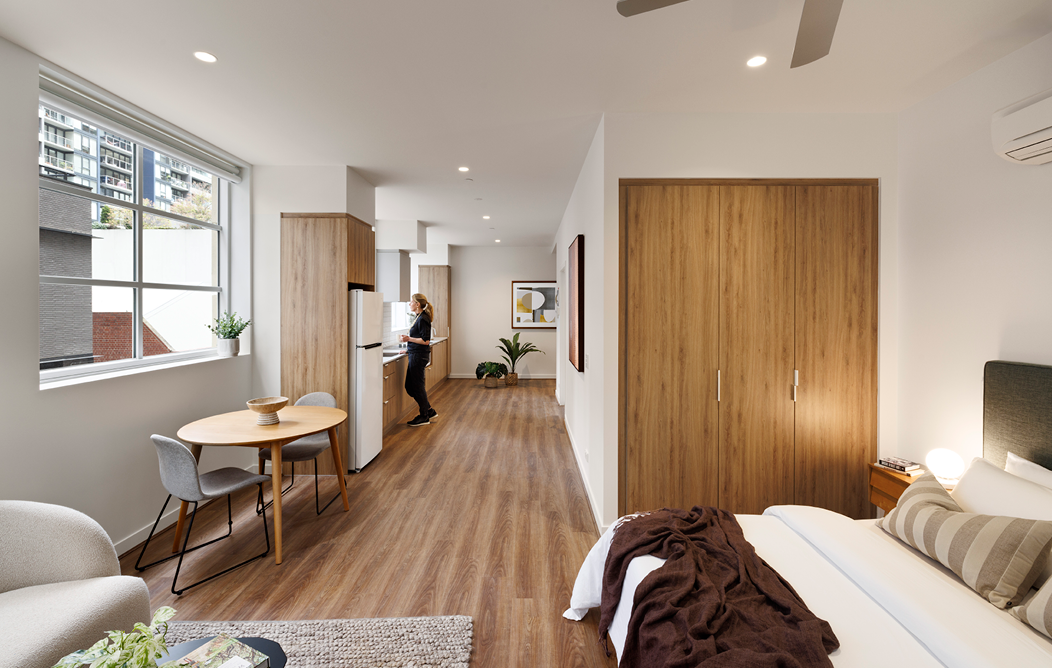
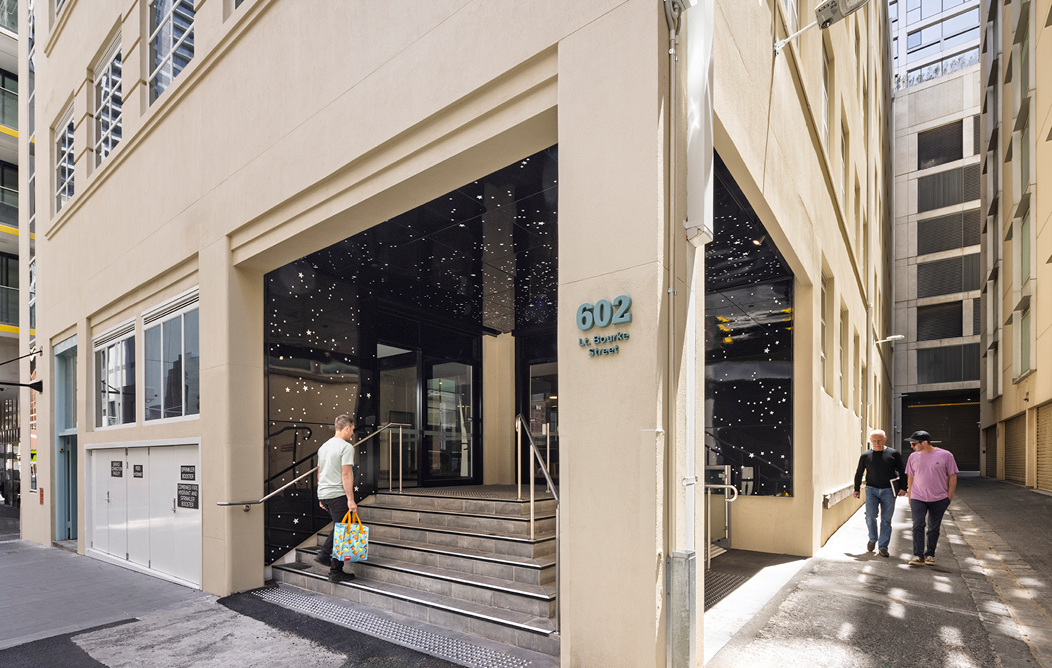
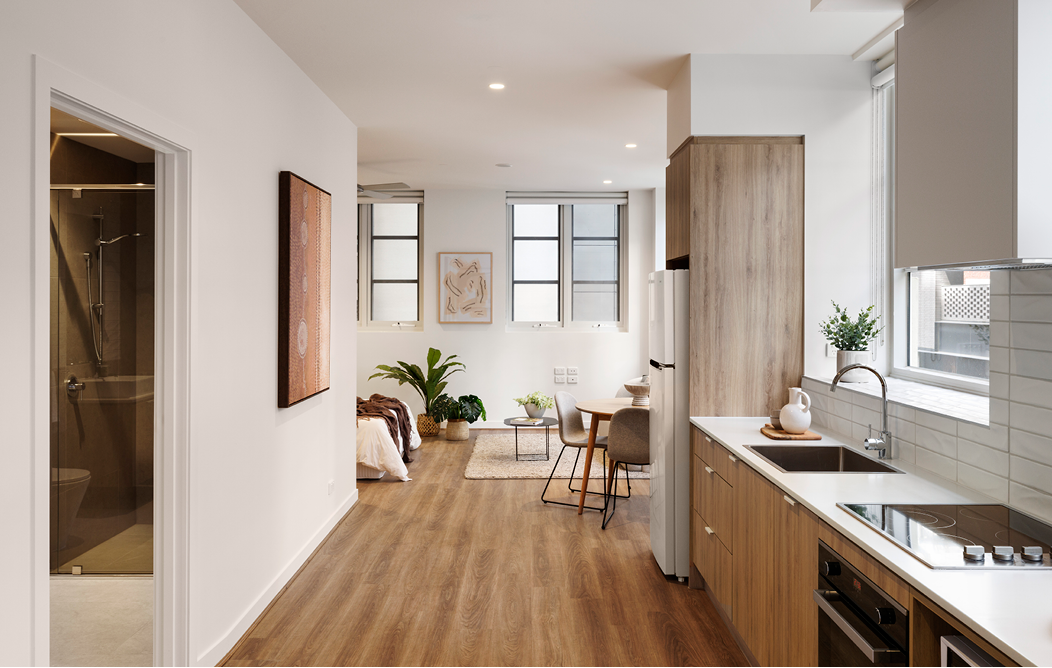
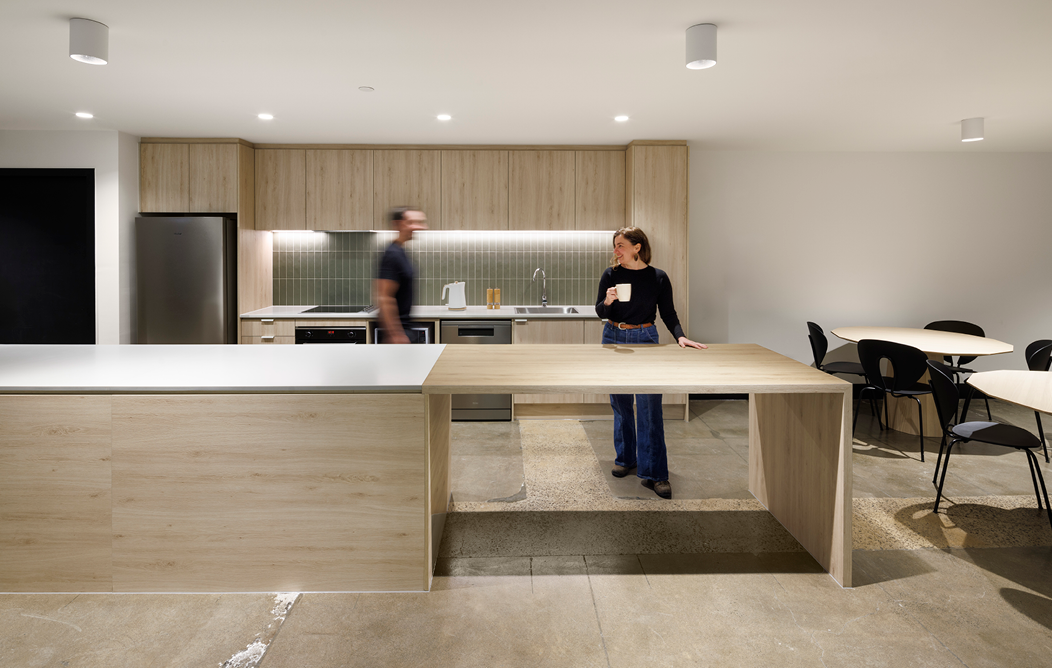
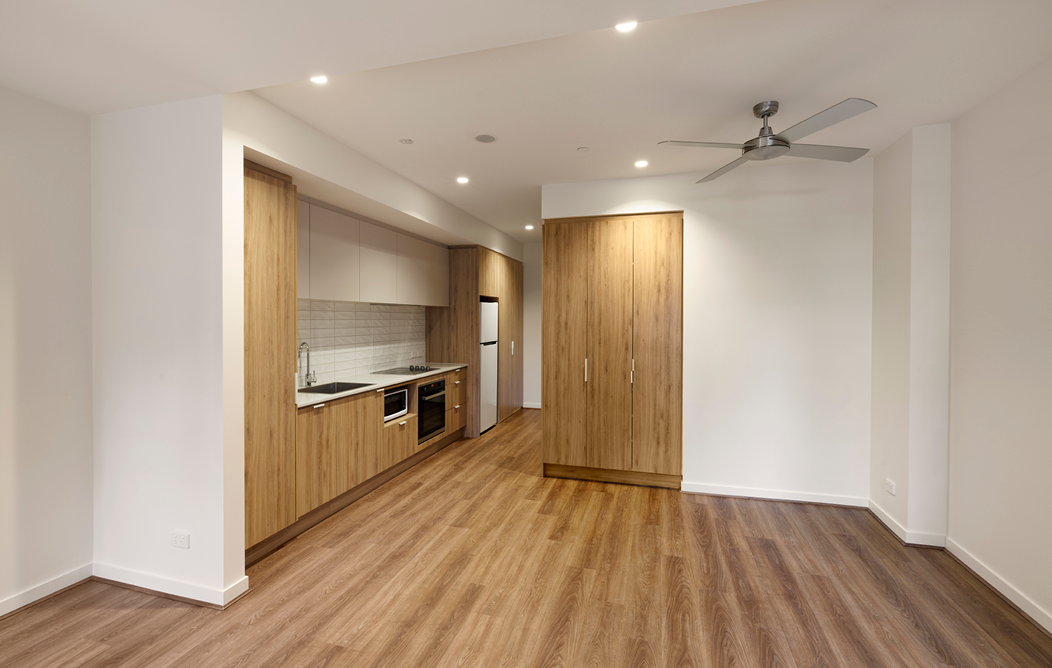
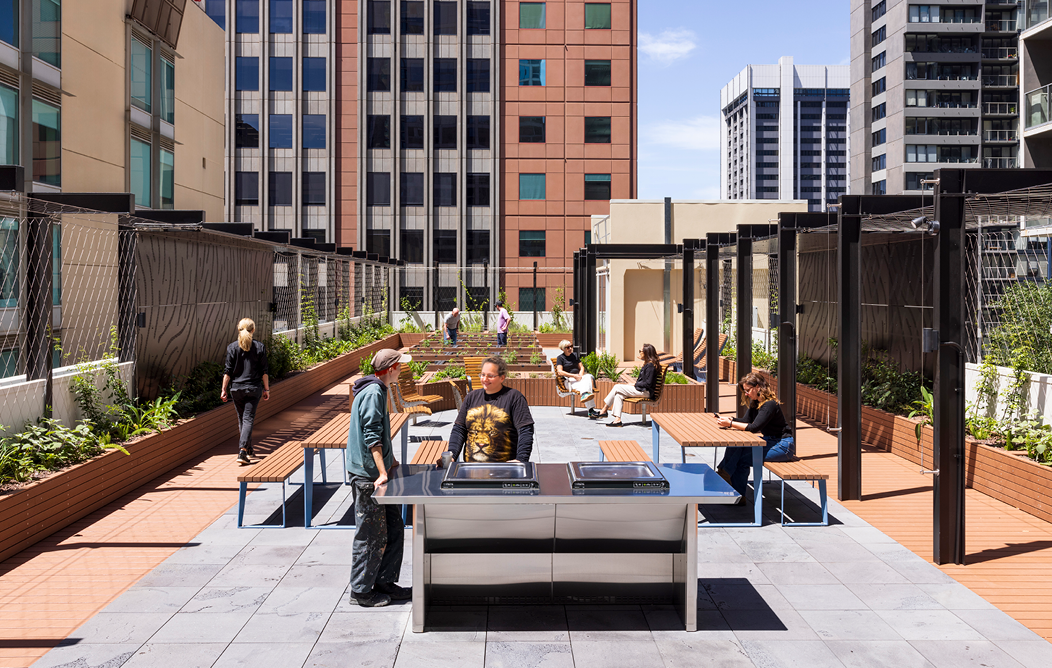
An innovative initiative to combat homelessness.
The $24.9 million Make Room project is a groundbreaking partnership between City of Melbourne and Unison Housing, the Victoria Government and the philanthropic sector to address the critical needs of people experiencing rough sleeping and homelessness in the City of Melbourne. It repurposes a City of Melbourne owned building at 602 Little Bourke Street into specialist accommodation for 50 residents at a time.
Unison (the Make Room project developer) will manage the tenancies as well as partnering with Cohealth to provide wraparound health and social supports to prepare and transition people into longer-term sustainable housing. Make Room residents will stay for up to 12 months, or until they can be connected with long-term secure housing.
APPROACH & SOLUTION
Make Room has taken a collaborative and innovative approach to funding. City of Melbourne provided the building valued at $12 million to Unison for 20 years and funding for the refurbishment and service delivery has been provided through a combination of $9 million from the Victorian Government, more than $7.2 million from philanthropic support, and contributions from the corporate sector.
While there can be environmental benefits in repurposing existing buildings, challenges can be many and often working with ‘ground up’ new builds and designs offers greater flexibility from the outset. SDC took a practical approach by meeting the project budget while developing considered solutions that met high-performance standards, worked with the existing limitations of the fabric of the building and provided suitable living conditions for occupants.
The Make Room partnership is fundamentally focused on ensuring that the future residents of Make Room feel culturally safe, heard and supported.
Early in the project, SDC completed a review of the design and provided advice on potential ESD inclusions for consideration across a range of different ESD categories.
With the inherent restrictions of the existing building, the primary focus was placed on available areas that would have a substantial impact on the residents’ day-to-day lives, with secondary improvements in other areas wherever most effective.
Creating a robust thermal envelope was identified as a key component that would bring multiple benefits to the site, particularly in reducing heating and cooling energy use and providing efficient thermal comfort for the apartments.
With the original facade being retained, window sizes and locations were already set, so SDC worked with the architects on insulation options for the external walls that worked within the limitations of the existing structure.
Improvements in potable water usage were achieved by managing the efficient performance of fittings and fixtures. While there was no opportunity for large rainwater capture and storage to connect to the apartments, a smaller rainwater tank is still to be included near the roof garden to provide water for irrigation of the planters.
Make Room not only meets immediate acute housing needs but is also designed to be replicated, potentially benefiting communities nationwide. This is the first known adaptive reuse project in Australia to use a Council asset to deliver supported housing for people experiencing chronic homelessness.
BUILDING SUMMARY
Site Area of approximately 650m2 over 7 levels consisting of:
- Improved insulative properties
- Reduced heating / cooling running costs
- Improved potable water use and rainwater capture for roof garden planters
SUSTAINABILITY SNAPSHOT
Approx 1,500 tonnes Co2e
saved from reuse of existing concrete structure
17% reduction in
potable water
All-electric building
Approx 1,500 tonnes Co2e
saved from reuse of existing concrete structure
17% reduction in
potable water
All-electric building
PROJECT PARTNERS
Unison – Client / Developer/Manager
City of Melbourne – Asset owner/Landlord/Funder
Homes Victoria (Victorian Government) – Funder ($9 million)
Harris HMC – Builder
Cohealth – Onsite – support service Provider
Aboriginal Melbourne / Public Realm Lab –
Cultural Safety Consultants
Mitch Mahoney / Matthew Harris – Indigenous artists
PwC (Priority Corporate) / Bunnings / Spencer Outlets / Infranexus (Southern Cross) – Commercial partners
i2C – Architects
Reshape Development – Superintendent
Tract Consultants – Planning Consultant / Landscape Architect
DCWC – Quantity Surveyor
Wrap Engineering – Services Engineer
Adams Engineering – Structural/Civil Engineering
Checkpoint – Building Surveyor (RBS)
Phillip Chun – Building Surveyor (CBS)
DDEG – Fire Engineer
Lovell Chen – Heritage
MAJOR DONORS
Lord Mayor’s Charitable Foundation
The Ian Potter Foundation
Portland House Foundation
Gandel Foundation
Helen Macpherson Smith Trust
OTHER PHILANTHROPISTS
Erdi Foundation
Loti & Victor Smorgon Family Foundation
William Buckland Foundation
Hansen Little Foundation
Rowe Family Foundation

